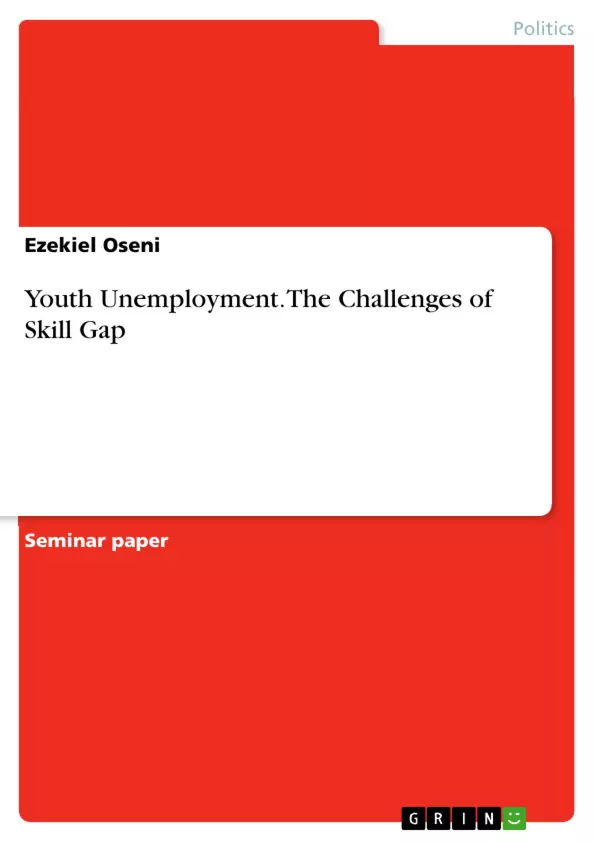This lecture will be focusing on "Youth Unemployment: The Challenges of Skill Gap". In other words, I will be looking at the "mismatch between the demand for labour in the corporate worlds and the supply of labour by educational institutions".
I believe the topic at hand is timely, given the incessant rise in unemployment that has plagued Nigeria for years now—and which, as new graduates, some of you will likely face.
Inhaltsverzeichnis (Table of Contents)
- Background
- Introduction
- Effects of youth unemployment on the Nigerian economy
- Challenges of Skill Gap
- Conclusion
Zielsetzung und Themenschwerpunkte (Objectives and Key Themes)
This lecture examines the issue of youth unemployment in Nigeria, focusing on the challenges created by the gap between the skills demanded by employers and those offered by educational institutions. The lecture explores the economic, social, and educational factors contributing to this challenge.
- The impact of youth unemployment on the Nigerian economy
- The mismatch between the skills required by the workforce and those provided by educational institutions
- The role of education in addressing the skill gap
- The challenges of the Nigerian business environment and its impact on job creation
- The importance of developing a skilled workforce to drive economic growth
Zusammenfassung der Kapitel (Chapter Summaries)
- Background: This section introduces the topic of youth unemployment in Nigeria and highlights the importance of addressing the skill gap.
- Introduction: This chapter explores the high rate of youth unemployment in Nigeria, examining the contributing factors such as the quality of education and the mismatch between skills and job market needs.
- Effects of youth unemployment on the Nigerian economy: This section analyzes the economic consequences of youth unemployment, emphasizing the impact on growth, productivity, and social stability.
- Challenges of Skill Gap: This chapter delves into the specific challenges posed by the skill gap, discussing the disconnect between educational curricula and employer requirements.
Schlüsselwörter (Keywords)
The key terms and concepts in this lecture include: youth unemployment, skill gap, education, workforce, economic development, business environment, Nigerian economy, labor market, and educational reform.
- Citar trabajo
- Ezekiel Oseni (Autor), 2018, Youth Unemployment. The Challenges of Skill Gap, Múnich, GRIN Verlag, https://www.grin.com/document/443740



